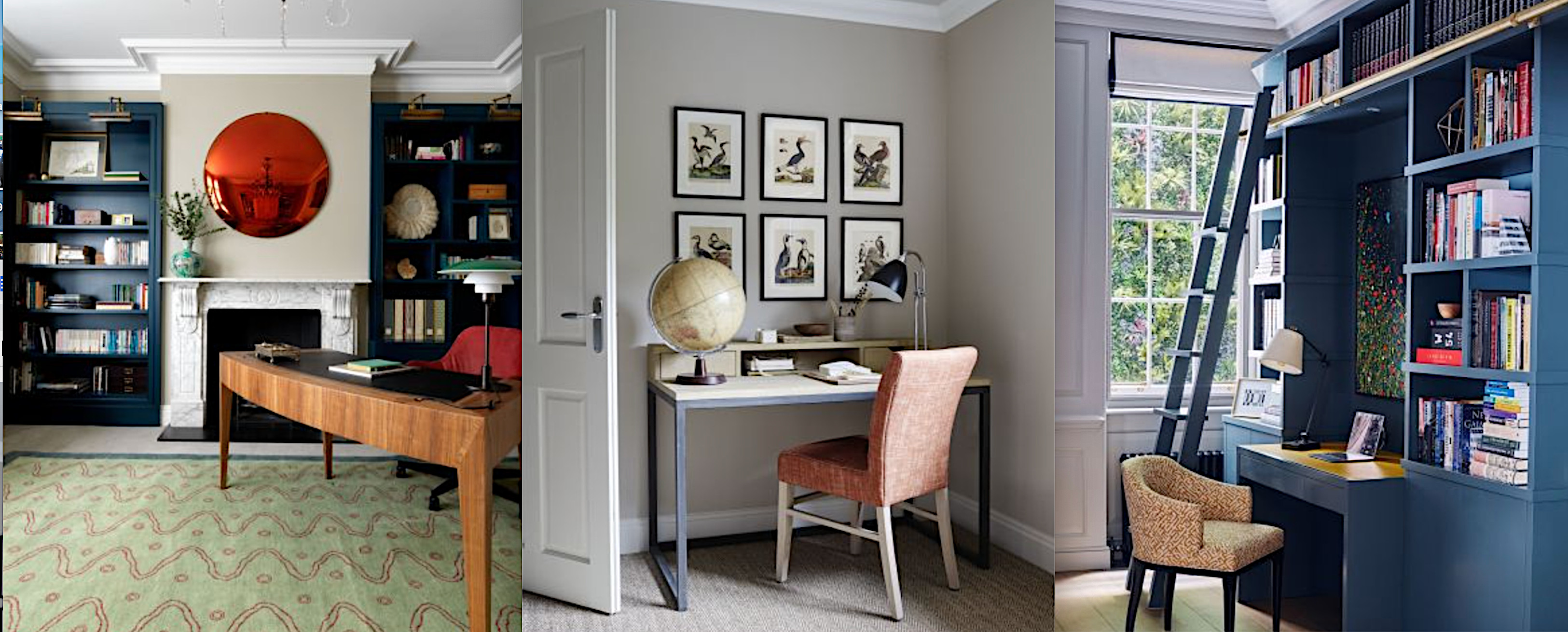Blog
Best Storage Ideas for Keeping Your Study Area Tidy
A cluttered study area can hinder focus and productivity, making it essential to maintain an organized and tidy workspace. Whether you’re studying for exams, working from home, or managing your personal projects, the right storage solutions can help keep your study area clean and efficient. Here are some of the best storage ideas to ensure your study space remains tidy, organized, and conducive to focus.

1. Use a Multi-Functional Desk
A well-organized desk is the foundation of a tidy study area. Look for a desk with built-in storage solutions, such as drawers, shelves, or cubbyholes. This will help you keep essential items close at hand without cluttering your desk surface.
- Desk with Drawers: A desk with drawers provides space to store stationery, papers, and other small items. You can use drawer dividers to keep things organized.
- Open Shelves or Cubes: Desks with open shelving offer additional space for organizing books, files, or decorative items while keeping them within reach.
2. Maximize Vertical Storage
When floor space is limited, going vertical is a great way to maximize storage. Shelves, wall-mounted organizers, and pegboards can all help keep your study area neat and tidy.
- Floating Shelves: Install floating shelves above your desk to store books, binders, and other materials. This clears up valuable desk space while keeping everything you need easily accessible.
- Wall-Mounted Organizers: Use wall-mounted baskets or organizers to hold pens, notebooks, and folders. This frees up your desk space for more important tasks.
- Pegboard Wall: A pegboard is an excellent way to hang small items like pens, scissors, headphones, or other study tools. You can customize the pegboard with hooks, shelves, or baskets to suit your needs.
3. Storage Bins and Baskets
Storage bins and baskets are an affordable and versatile solution for organizing your study materials. You can use them to store books, supplies, or paperwork in an orderly manner while keeping them out of sight.
- Clear Bins: Opt for clear storage bins so you can easily see what’s inside without opening them. Label the bins for added organization (e.g., “Essays,” “Notes,” “Supplies”).
- Decorative Baskets: Use decorative baskets for storing larger items like notebooks, chargers, or extra supplies. These can add a stylish touch to your study area while keeping things tidy.
4. Drawer Organizers
Drawer organizers are perfect for creating order within desk drawers. These small dividers help separate pens, paper clips, sticky notes, and other items, so you don’t waste time searching for supplies.
- Adjustable Dividers: Look for adjustable drawer dividers that can be customized to fit your desk’s drawers. These dividers are perfect for creating sections for different supplies, such as writing utensils, office tools, and even electronics accessories.
- Small Containers: Small containers or trays within drawers can help keep pens, paper, and other small objects neatly organized and prevent clutter from accumulating.
5. Rolling Carts
A rolling cart is a great storage solution that can be moved around your study space as needed. They are especially useful for keeping your study area organized without taking up too much space.
- Compact Carts: A small rolling cart can hold everything from pens and highlighters to notebooks, textbooks, and stationery. Look for carts with multiple tiers so you can separate different items based on their use.
- Mobile Storage: If your study area doubles as a multipurpose space, a rolling cart can be moved when you need more space or a change in layout. You can even store supplies on a cart and wheel it into a closet or other part of the room when you’re done.
6. Under-Desk Storage Solutions
If you’re tight on space, utilizing the area under your desk can be an effective way to store items that don’t need to be readily accessible. You can find storage units specifically designed to slide under desks for this purpose.
- Under-Desk Drawers: Small rolling drawers or filing cabinets that fit under your desk can provide extra storage for documents, notebooks, and study materials.
- Storage Bins: Use stackable storage bins to keep extra supplies or files organized and hidden away under your desk. Label the bins to help you easily identify their contents.
7. Filing Systems
Filing systems are essential for keeping papers organized, whether it’s assignments, notes, or documents related to work or school. A filing cabinet or portable file box can keep your important papers neat and easy to find.
- File Cabinets: A small file cabinet can store all your important documents, notebooks, and papers. For better organization, color-code your files or use folders to categorize subjects or projects.
- Portable File Box: A portable file box or accordion folder is an affordable alternative for smaller spaces. This is a great option if you need to keep your papers organized but don’t want a large filing cabinet.
8. Closet or Wardrobe Storage
If your study space is part of a shared room or a multifunctional area, using closet space for additional storage can be a smart solution. You can keep extra books, supplies, and even electronics tucked away neatly in a closet.
- Closet Organizers: Invest in closet organizers like bins, baskets, or shelves to store study materials and personal items. Make sure to use the highest shelves for less frequently used items to keep the most essential materials accessible.
- Hanging Organizers: Hanging organizers or over-the-door storage systems can help utilize unused space in your closet, providing pockets for smaller items like pens, notebooks, or sticky notes.
9. File and Document Holders
If you’re constantly dealing with paperwork, investing in file and document holders is a smart way to keep your study space organized. These holders can keep your papers upright and easily accessible.
- Vertical File Holders: Use vertical file holders on your desk or shelves to organize loose papers, folders, and documents. This prevents piles of papers from taking over your desk while keeping everything within easy reach.
- Magazine Holders: Magazine holders are perfect for organizing books, notebooks, or folders on your shelves. They are compact and easy to label, so you can quickly find what you need.
10. Cable Management
In today’s digital age, dealing with tangled cables can be a significant source of clutter. Managing cords and cables not only helps keep your study area tidy but also prevents accidents and damage to your devices.
- Cable Clips: Use cable clips or cable ties to keep wires and cords neatly organized. Attach them to the back of your desk or along the wall to prevent cables from getting tangled.
- Cordless Charging Stations: Consider investing in a wireless charging station to reduce clutter from charging cables. This keeps your desk surface clear and organized.
11. Floating Desk Storage
If you’re looking to maximize space and reduce clutter, consider using a floating desk with built-in storage. These desks mount on the wall and provide open or closed storage below for books, supplies, or files.
- Wall-Mounted Storage: Floating desks with integrated shelves or cabinets help you maintain a clean and minimalistic workspace while providing storage for books, papers, and office supplies. This is especially useful if you’re working in a smaller space.

Conclusion
An organized study area promotes focus, efficiency, and productivity. The key to keeping your study space tidy is choosing the right storage solutions that suit your needs and the available space. From multi-functional desks and rolling carts to filing systems and cable management, there are plenty of storage options to help you maintain an organized and clutter-free study area. By incorporating these storage ideas into your study space, you’ll create a more functional and comfortable environment that allows you to focus on your work without distraction.


